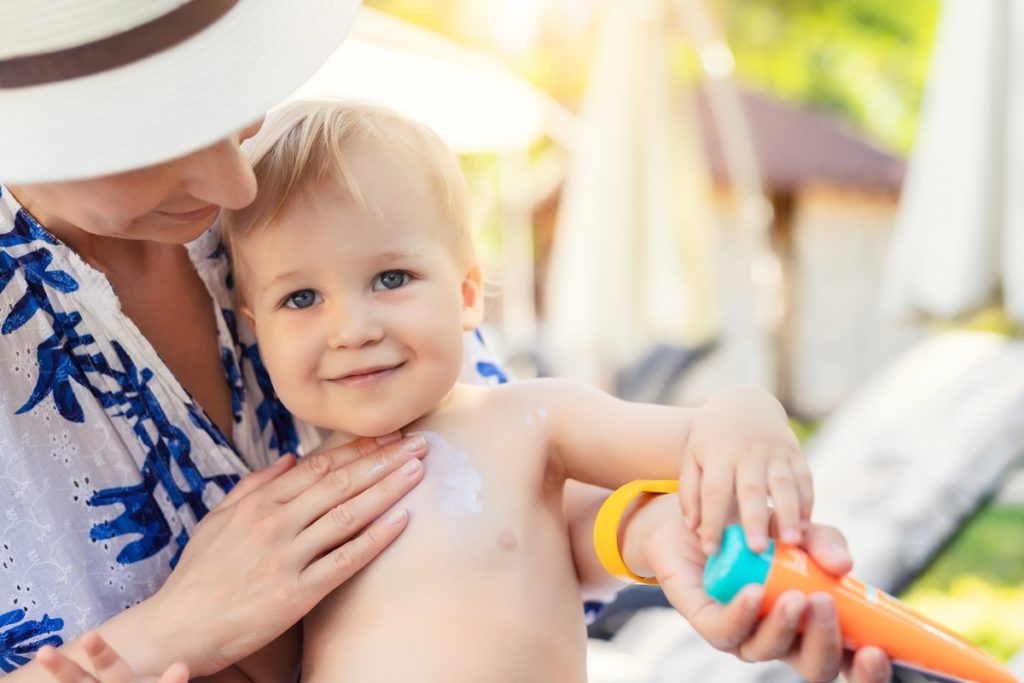
After a restricted and unsettling 2020, getting outside this summer feels more urgent than ever. We’re all craving open spaces, fresh air and sunlight. As soothing as the sun is for the soul, however, it’s not so good for our skin. While we keep up our COVID-19 precautions, let’s remember: sun protection still matters, too. Here is a skin-care refresher to help you stay safe out there.
Slather on the sunscreen
Using sunscreen every day is the most important thing you can do to protect your skin — not just from early aging, but also from melanoma, the deadliest form of skin cancer. The best sunscreen is the one you will use often. If you prefer a spray, use a spray. They’re all effective as long as you apply them evenly and reapply every two hours. A broad-spectrum SPF 30 is a good daily choice in the summer. For travels to sunnier places or long days out by the water, go for 50-plus. And don’t forget your hat and sunglasses.
Protect your kids
Most sun damage happens before the age of 25. Parents play a vital role in protecting their kids. For youngsters whose skin may be more sensitive, a pure mineral sunscreen that physically blocks harmful rays is ideal. For faces, wax-based sticks are the least likely to run into and sting the eyes. Sticks are great for athletes, too — tuck one into their gym bag so they can apply sunscreen before playing without getting it on their hands. For the pool and beach, rash guards, hats and sunglasses are just as important as sunscreen.
Say no to indoor tanning
It’s a mistake to think that indoor tanning will protect you from sunburns. Tanning beds damage skin and are linked to increased rates of melanoma. If your skin needs a touch of color, consider a self-tanner instead.
Limit sunburn damage
We all overdo it once in a while. As soon as you notice a sunburn, get out of the sun and avoid it until your skin has healed. Cool your skin and limit damage by taking a cool shower and applying a moisturizing lotion and/or aloe vera gel. A 1% hydrocortisone cream also can provide relief.
Prevent heat rash
Heat rash, also called prickly heat, typically occurs in hot, humid weather, and is most common in young children. The fine, uniform pink or red bumps usually resolve on their own over several days to weeks, but in severe cases, they can fill with pus, like pimples. Your best bet is to practice prevention. Avoid plugged sweat glands — the most common cause — by dressing kids in loose, breathable clothes and keeping their skin clean.
Look out for poison oak and ivy
The best way to avoid plants that can cause itchy red rashes is to know what they look like. See photos of poison oak and other plants to avoid here. If you have these plants in your yard, keep your skin covered when doing yard work, and wash with soap and water immediately afterward. When hiking or camping, stay on maintained trails. Products like Ivy Block can provide further protection for your skin.
Beat back bugs
Nobody likes mosquito bites. To avoid them, avoid the outdoors at dusk, when mosquitoes are most active. Products with DEET are the most effective for preventing bites; if you’re concerned about using it on children, you can spray it on their clothes instead of their skin. DEET can help ward off ticks, as well. After hiking or spending time outside, check all family members, including pets, for new black dots that could be ticks.
Know your skin
Examine your skin regularly, know what’s normal for you, and be aware of anything new or unusual. A mole that’s changing could be a sign of melanoma. Check moles for the ABCDEs: asymmetry (irregular shape), borders (if they’re notched or blurry), colors (other than brown), diameter (bigger than a pencil eraser), or evolution (changes) may be causes for concern. Other types of skin cancer might appear as pink or crusty spots or sores that aren’t healing.
When in doubt, check it out
The Portland Clinic’s dermatologists are experts in diagnosing and treating all conditions of the skin. If you have a concern, play it safe and get it checked out. Early treatment of potential melanomas can make all the difference and ensure that you have many happy summers to come.


